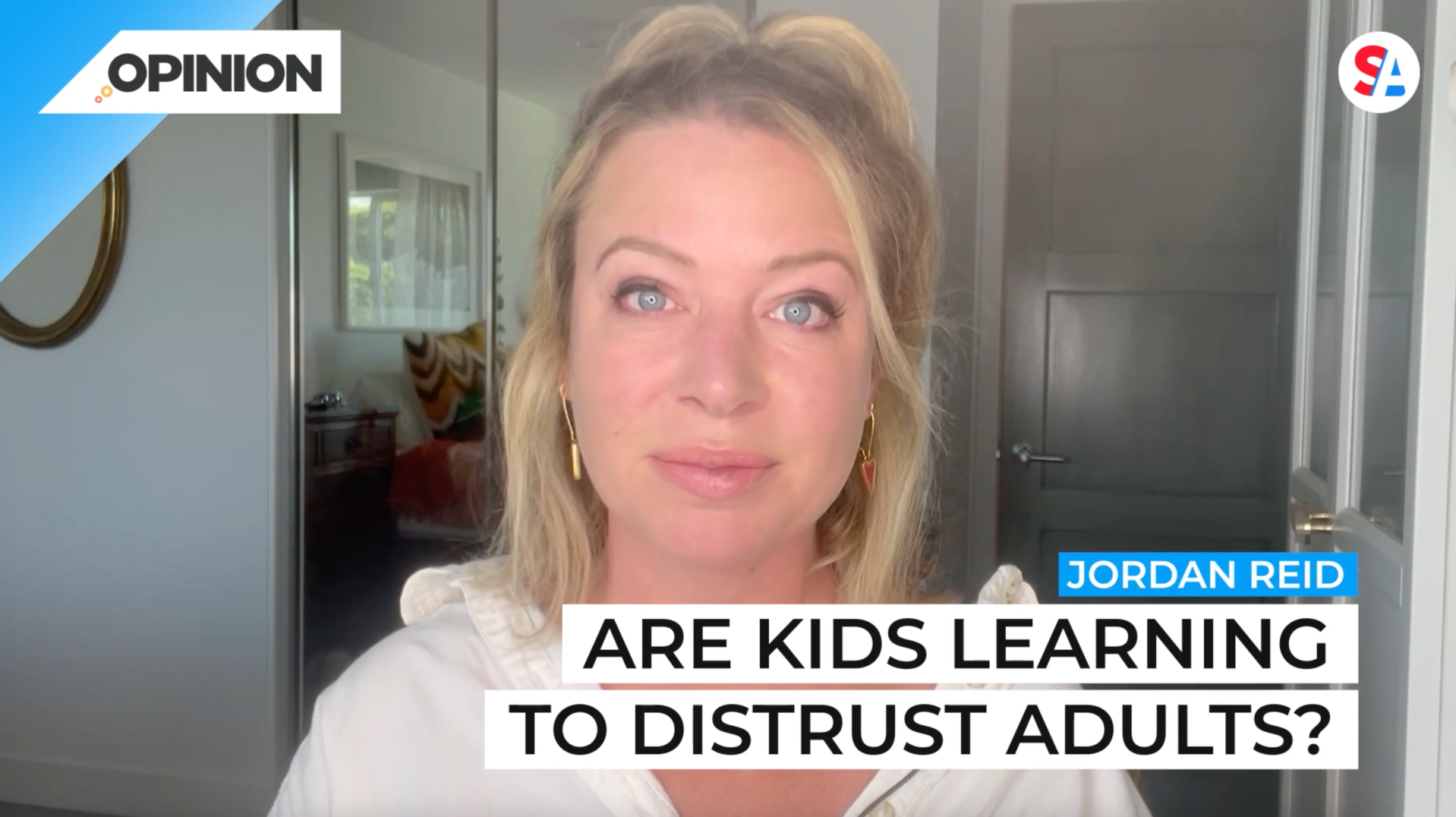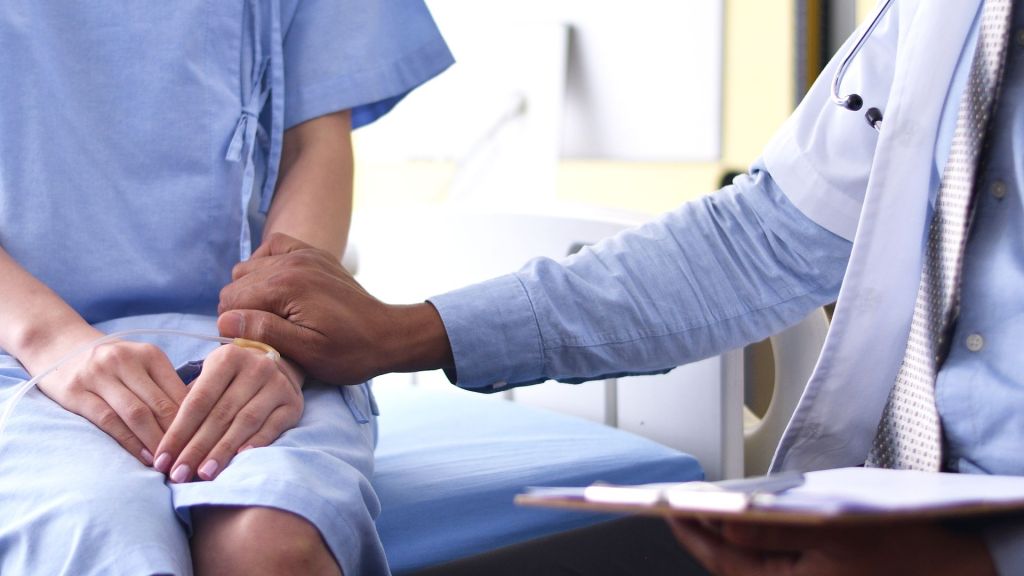
Commentary
-
Our commentary partners will help you reach your own conclusions on complex topics.
My fourth-grader, who is 10, is still wearing a mask outdoors at school.
He doesn’t have to; the school’s stopped requiring outdoor mask-wearing about two weeks ago, but he feels more comfortable that way, and…I mean…I get it.
The kid has spent one-fifth of his lifetime in various stages of quarantine, with the adults around him freaking out about this invisible potentially deadly disease in the air one thousand percent of the time and like crossing the street to avoid a neighbor in case they might accidentally sneeze and kill you.
Our school is apparently dropping indoor mask mandates soon – the rumor is that it’ll be in a week or so.
And when I told my son this, I was excited, I can only describe the look he gave me as a “oh HELL no” look.
And I explained to him – again – that he’s vaccinated. That the Omicron variant isn’t as bad as the previous variants. That infection rates are way down in our county. That it’ll all be ok soon.
Yeah, he said. That’s what you said last time. And I have to say, the kid has a point.
Remember Summer 2020, when there was like five seconds when we all started to re-emerge into the world… and then all ran back inside as quickly as we could.
And then there was Summer 2021, which was supposed to be, like, hot girl summer or the Roaring 20s are back baby, or something like that?
I don’t know. I didn’t pay attention because I’m old, and I honestly don’t enjoy interacting with people that much, virus or not.
But you could still feel there was a palpable shift in the energy. People were ready to get back to life as they knew it.
And then Omicron happened. And….honestly, I can’t even keep the sequence of events straight in my own head – It feels like anything from March 2020 on is this big featureless blob of year.
So I get why my son is wary when I say to him, “No it’s ok. You can take off your mask indoors.”
According to him, the adults in the room don’t know what they’re doing.
As a parent, I don’t know exactly how to feel about the rollback of all these restrictions. I want my children to go back to normal life, of course. I think we all want that, and I want to see how the lower halves of their faces look when I volunteer in the classroom because they’re so cute.
But I’ve also seen how all this back and forth and up and down and changing of rules and who knows what’s going on has made the kids very, very cautious.
They don’t feel safe. Because their short histories have taught them that they might not be.
But that said, as parents, we walk a fine line between being vigilant about our kids’ safety, and we tell our kids to wear bike helmets, but we also let them go for a ride. And as much as we might want to raise them in a bubble, we know that we can’t do that.
And we can’t continue to teach them – as we have been these past couple of years – to be fearful of human connection – and, yes, a big part of human connection involves the ability to see each other’s faces. To know if someone’s smiling or frowning, and for children, part of learning how to be an empathetic human being involves learning how to attune themselves to those tiny indications of emotion on another child’s face.
I get why my son is wary. I’m wary too, not so much because I’m concerned about his safety, but because I’m concerned about continuing this disaster of mixed messaging that’s causing him to distrust adults.
But most of all, I really, really want him to get to be a kid. To laugh with his friends, and see them laughing back. I want him to get to go live again.
-
Trump disgraces Oval Office with shameful treatment of Zelenskyy
On Feb. 28, U.S. President Donald Trump hosted Ukrainian President Volodymyr Zelenskyy at the Oval Office of the White House in a televised state visit that escalated into an argument and ended with Zelenskyy’s abrupt departure. The purpose of the visit, ostensibly, was to formalize an agreement for continued U.S. support of Ukraine in its… -
RFK Jr.’s war on psychiatric meds risks decades of progress
On Feb. 18, during his first meeting with staff, Health and Human Services Secretary Robert F. Kennedy Jr. stated that he intends to address the possible overmedication of children and the risks of antidepressants — echoing a Trump executive order aimed at reducing childhood chronic disease rates. The order has sparked concerns over youth access… -
Loss of USAID makes America and the world less safe
Elon Musk and President Trump shocked the U.S. foreign policy community and America’s partners around the world with the early and abrupt closure of USAID, the United States Agency for International Development. USAID was a cornerstone of U.S. foreign policy and consistently received bipartisan support from Congress. Experts warned that the decision puts millions of… -
Trump’s ‘Gulf of America’ renaming is mere political spectacle
Aboard Air Force One, en route to the Super Bowl in New Orleans, President Trump held a news conference. As the flight entered international waters over the Gulf of Mexico, he issued an executive order renaming it the “Gulf of America” and declaring Feb. 9 as “Gulf of America Day.” The order, titled Restoring Names… -
President Trump politicizes DC plane crash as Americans mourn
Sixty-seven people died when a Black Hawk helicopter crashed into American Airlines Flight 5342 as it came in for a landing at Reagan National Airport on the night of Jan. 29 outside of Washington, D.C. Investigators are still examining the accident and putting details together, but believe that the helicopter was flying at too high…
Latest Opinions
-
 Getty Images
Getty Images
US changes course, pauses tariffs for all USMCA goods until April 2
-
 AP Images
AP Images
More than half of global fossil fuel-related CO2 emissions linked to 36 companies
-
 Getty Images
Getty Images
Zelenskyy foes met with Trump camp, oppose wartime election: Report
-
 Getty Images
Getty Images
Trump preparing to sign executive order to begin closing Department of Education
-
 Getty Images
Getty Images
Fake bomb threat called during Pro-Palestinian protest at Barnard College
Popular Opinions
-
In addition to the facts, we believe it’s vital to hear perspectives from all sides of the political spectrum.






